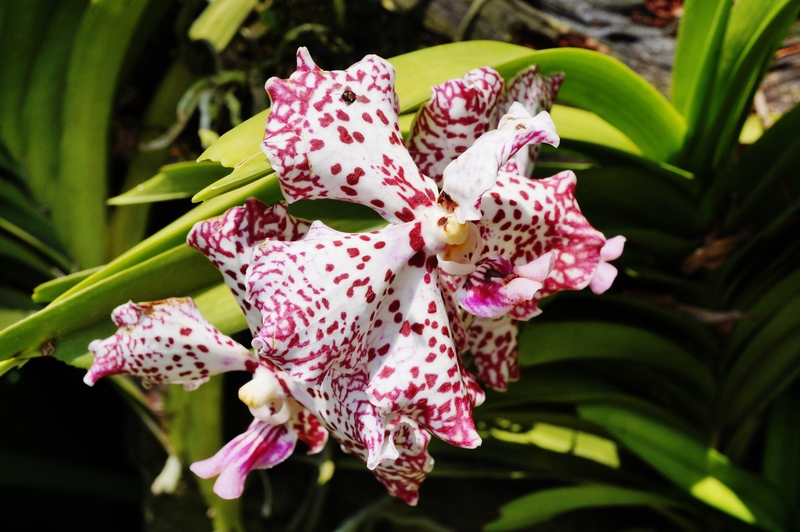Best Practices for Fertilizing Your Garden
Posted on 01/04/2024
Fertilizing is an essential aspect of gardening that can often be overlooked or underestimated. Many gardeners may think that simply planting their desired plants and watering them regularly will suffice, but in order to achieve a thriving and healthy garden, proper fertilization is crucial. Fertilizing provides vital nutrients to the soil that your plants need to grow strong and vibrant. In this article, we will discuss the best practices for fertilizing your garden and how it can benefit your plants.
Why is fertilizing important?
Plants rely on nutrients from the soil to grow and develop properly. However, over time, these nutrients get depleted as they are absorbed by the plants or washed away by irrigation and rainfall. This is where fertilizers come into play. They replenish the nutrients in the soil, ensuring that your plants have everything they need to thrive.
Fertilizers also help improve soil structure, texture, and water retention abilities. They contain essential elements such as nitrogen, phosphorus, and potassium, which are necessary for plant growth. These elements also help in root development, flower formation, and disease resistance.

When to fertilize?
Timing is crucial when it comes to fertilizing your garden. Fertilizer should be applied during the early stages of plant growth or just before they enter their active growth phase. This ensures that the plants have access to the necessary nutrients right from the start.
For established plants, fertilizers should be applied at least once a month during their growing season. However, it's important not to over-fertilize as this can lead to nutrient burn and damage to your plants.
Types of fertilizers
There are two main types of fertilizers - organic and synthetic. Organic fertilizers are made from natural materials such as manure, compost, bone meal, and fish emulsion. They release nutrients slowly over time, providing a steady supply of nutrients to your plants.
Synthetic fertilizers, on the other hand, are made from chemical compounds. They release nutrients quickly and are more potent compared to organic fertilizers. However, they can also be harmful to the environment if not used properly.
How much to apply?
The amount of fertilizer you need to apply depends on several factors - the type of fertilizer, plant type, soil conditions, and climate. Always follow the instructions provided by the manufacturer to determine the proper application rate. Over-fertilizing can harm your plants and pollute the environment, while under-fertilizing may result in stunted growth and poor plant health.
Tips for effective fertilization
- Test your soil: Before applying any fertilizer, it's important to test your soil to determine its nutrient content. This will help you choose the right type and amount of fertilizer for your specific garden needs.
- Use organic fertilizers: Organic fertilizers not only provide essential nutrients but also improve soil health. They are also safe for the environment and do not cause any harm to beneficial organisms in the soil.
- Follow instructions: Always follow the manufacturer's instructions when applying fertilizer. This will ensure that you are using the correct amount and applying it at the right time.
- Water thoroughly: After applying fertilizer, make sure to water your plants thoroughly. This will help dissolve the nutrients and allow them to reach deep into the soil where they are needed.
- Use natural sources of nitrogen: Instead of relying solely on synthetic nitrogen fertilizers, consider using natural sources such as bone meal or blood meal. These provide a slow release of nitrogen and benefit both your plants and soil.

Pros and Cons
Pros:
- Promotes healthy plant growth
- Provides necessary nutrients to the soil
- Improves soil structure and water retention
- Options for both organic and synthetic fertilizers
- Easy to use and apply
Cons:
- Over-fertilizing can be harmful to plants and the environment
- Synthetic fertilizers can be harmful if not used properly
- Can be expensive in the long run
Takeaways
Fertilizing your garden is crucial for the health and vitality of your plants. It provides essential nutrients, improves soil health, and promotes healthy growth. Always test your soil, follow instructions, and consider using natural sources of nutrients for a more sustainable approach.
In conclusion, proper fertilization is key to achieving a thriving and beautiful garden. By following these best practices and tips, you can ensure that your plants have everything they need to grow strong and healthy. So don't overlook this important aspect of gardening - give your plants the gift of proper fertilization and watch them flourish!




